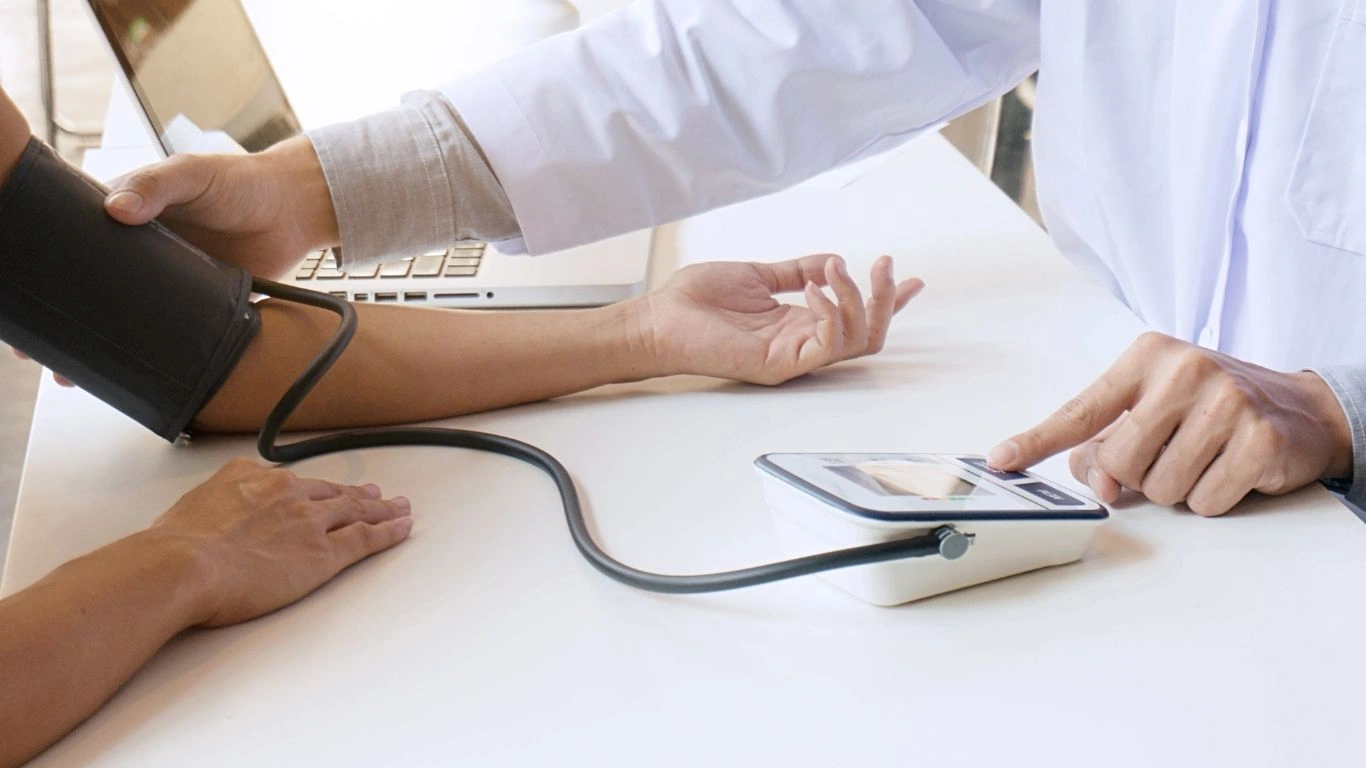Hypertension Myths vs. Facts – What You Need to Know
Confused about hypertension? There are many myths surrounding high blood pressure that can cloud your judgment. In this article, we’ll clear up some of the most common misconceptions and provide you with the real facts you need to know to protect your health!

Myth 1: Hypertension Only Affects Older Adults
A very common misconception is that hypertension is an issue for older adults only. While it’s true that blood pressure tends to rise as people age, young adults and even teenagers can suffer from high blood pressure. In fact, poor diet, lack of exercise, and excessive stress can contribute to hypertension in younger individuals.
Fact:
Hypertension can affect anyone, regardless of age. It’s important for individuals of all ages to monitor their blood pressure, especially those with risk factors like obesity, a sedentary lifestyle, or a family history of high blood pressure. 
Myth 2: You’ll Know If You Have Hypertension Because of the Symptoms
Another myth is that hypertension has obvious symptoms, such as headaches, dizziness, or nosebleeds. While these symptoms can sometimes be associated with high blood pressure, they are not reliable indicators.
Fact:
Hypertension is often called the “silent killer” because it usually has no noticeable symptoms until it’s too late. The best way to know if you have high blood pressure is by getting regular check-ups and having your blood pressure checked. Early detection is key to preventing heart disease, strokes, and kidney damage.
Myth 3: Hypertension Is Only Caused by Lifestyle Factors
You might hear that hypertension is entirely the result of poor lifestyle choices, such as overeating salt or not exercising enough. While lifestyle factors do play a huge role in the development of high blood pressure, genetics can also contribute.
Fact:
Genetics can make some individuals more prone to hypertension. If your parents or close relatives have had high blood pressure, you may be at higher risk. That’s why it’s crucial to monitor your blood pressure regularly, even if you lead a healthy lifestyle. 
Myth 4: Hypertension is Not Dangerous if Your Blood Pressure Fluctuates
Many people believe that as long as their blood pressure is normal most of the time, the occasional spike doesn’t matter. However, inconsistent blood pressure can still pose risks.
Fact:
Even if your blood pressure fluctuates, it can still damage your blood vessels over time. Consistently elevated blood pressure, even if not always extremely high, can lead to heart disease, kidney problems, and strokes. Consistent monitoring and management are important to protect your health. 
Myth 5: Hypertension Medication is Addictive
Many people fear that taking blood pressure medication will make them dependent on it for life. They might hesitate to take their prescribed medications for this reason, leading to uncontrolled blood pressure.
Fact:
Hypertension medications, like ACE inhibitors, beta-blockers, and diuretics, are not addictive. They help manage your blood pressure and reduce your risk of complications, such as heart attacks and strokes. If you feel like your medication isn’t working or is causing side effects, it’s essential to talk to your doctor for adjustments.
Myth 6: Hypertension Can’t Be Prevented
It’s easy to assume that if you’re genetically predisposed to hypertension, there’s nothing you can do about it. However, prevention is more possible than many people realize.
Fact:
While you may not be able to change your genetics, adopting a healthy lifestyle can significantly reduce your risk of developing hypertension. Eating a balanced diet (low in salt and rich in fruits and vegetables), staying active, and managing stress can help keep your blood pressure at healthy levels.
Myth 7: Only Medications Can Control Hypertension
Some believe that if you’re diagnosed with high blood pressure, the only solution is to rely on medications. This myth overlooks the significant role that lifestyle changes can play.
Fact:
While medication is sometimes necessary, lifestyle changes like a healthier diet, regular exercise, weight management, and reducing alcohol and tobacco use can be powerful tools in managing blood pressure. Often, lifestyle changes alone are enough to bring blood pressure under control.
Myth 8: Only Older Adults Need to Monitor Their Blood Pressure
It’s a mistake to think that blood pressure monitoring should only start in middle age or later. The reality is, everyone—regardless of age—should keep track of their blood pressure.
Fact:
Regular monitoring is important at all ages, especially if you have risk factors for high blood pressure like obesity or a family history of hypertension. Early detection and lifestyle modifications can help prevent the development of hypertension.
Conclusion
Hypertension is a serious condition, but many of the myths surrounding it can lead to misunderstandings about prevention, treatment, and management. By debunking these myths, you can make informed decisions about your health and reduce the risks associated with high blood pressure. Always talk to your healthcare provider if you have concerns about your blood pressure, and don’t ignore the power of a healthy lifestyle.
Appendices
References
For more information on hypertension and how to manage it, check out these trusted resources:
- American Heart Association (2024). Understanding Hypertension. Read More
- National Institutes of Health (2024). Hypertension: Facts and Figures. Read More
- World Health Organization (2023). Hypertension Management Guidelines. Read More
FAQs
Here are some frequently asked questions about hypertension:
- What’s the ideal blood pressure range? A normal blood pressure reading is typically around 120/80 mmHg. Anything higher may be a sign of hypertension.
- How often should I check my blood pressure? It depends on your health and risk factors, but a general rule is to check it regularly, especially if you have a family history of hypertension.
- What foods should I avoid if I have hypertension? Foods high in sodium, like processed foods and canned soups, should be limited. Focus on fruits, vegetables, lean proteins, and whole grains instead.
- Can stress cause high blood pressure? Yes, stress can temporarily elevate your blood pressure, and chronic stress can contribute to long-term hypertension.
- Is exercise good for lowering blood pressure? Absolutely! Regular physical activity can help lower blood pressure and improve heart health.
Disclaimer: The information provided in this article is for educational purposes only and should not replace professional medical advice. Always consult with a healthcare provider regarding concerns about your blood pressure and treatment options.

Dr. Gwenna Aazee is a board-certified Internal Medicine Physician with a special focus on hypertension management, chronic disease prevention, and patient education. With years of experience in both clinical practice and medical writing, she’s passionate about turning evidence-based medicine into accessible, actionable advice. Through her work at Healthusias.com, Dr. Aazee empowers readers to take charge of their health with confidence and clarity. Off the clock, she enjoys deep dives into nutrition research, long walks with her rescue pup, and simplifying medical jargon one article at a time.







